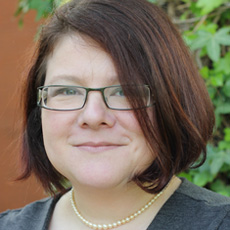Meet Rebecca Riley, Administrative Director of City-REDI, and learn more about her role and ambitions for the newest research centre at Birmingham Business School.
 I have lived and worked in cities all my life, born and bred in Manchester (or Bolton if I am being specific), studied in Liverpool, and worked in Glasgow and London; I love the opportunities offered by cities: new people, new challenges, and new experiences. Birmingham is my next opportunity, as a Director of the City Region Economic Development Institute (City-REDI).
I have lived and worked in cities all my life, born and bred in Manchester (or Bolton if I am being specific), studied in Liverpool, and worked in Glasgow and London; I love the opportunities offered by cities: new people, new challenges, and new experiences. Birmingham is my next opportunity, as a Director of the City Region Economic Development Institute (City-REDI).
My first few months have been no different to starting any other new role, and adapting to a new organisation. The University is a huge ecosystem of skills and expertise far beyond any I have had the opportunity to get to know before. This is a huge resource for City-REDI to draw on. Building this network is my immediate priority, alongside growing the core team and developing a research network across the West Midlands, to ensure we live up to The University of Birmingham’s civic roots. With core funding and investment from the University to develop this approach, it gives us flexibility to deliver and work in partnership wherever possible.
Joining City-REDI continues my professional passion – research; making sure it has impact, and makes a difference to lives – producing better outcomes for people. One of my personal goals has always been to help establish a new research institute and bring the policy maker and academic closer. City-REDI is the new kid on the block for this, aiming to help city regions and places, develop practical solutions, informing and influencing regional and national economic policy, through strong evidence. But we want to tackle this differently, a new approach driven by a desire to understand and have an impact on, the complex ways in which our economy works. We have a starting point of treating the economy as a complex organism, where everything is interrelated, productivity, well-being, environment; and exploring those relationships to understanding how we can grow an economy through its people, but not at their expense. We seek to create a new practical model to aid policy and programme development. Our first contract as academic partner to KPMG, delivering an enhanced impact model for the West Midlands Combined Authority starts this thinking. Where we are exploring the challenge of understanding the impact of skills and business support programmes on the economy.
I am responsible for the strategic development of the Institute, ensuring our research is relevant and accessible to policy makers, building and facilitating relationships with local and national policy makers. Having worked in regional and local development for nearly 20 years, commissioning, promoting and delivering research to underpin policy and practice, I bring both public sector knowledge and private sector delivery skills. After the first few months I see the immediate challenges to City-REDI as:
- Balancing academic demands with our wish to engage and support the policy world;
- Understanding where we can have greatest impact and attract research funding to benefit the region;
- Supporting and driving the best thinking on the future of the West Midlands and ensuring effective, balanced growth;
- Bringing together the right expertise and people to do the job.
My primary focus is developing our understanding of the client needs and delivering high quality research that achieves impact. Leading on our business development, contract research and consultancy work, and creating an open door into the university and its local economic development expertise.
So I look forward to continue to build networks, developing and delivering a range of ways we can work in partnership, ideas on the horizon include seminar series and network events for local research practitioners, developing a wider network we can collaborate with; and publication of working papers and briefings to make research accessible and generate new research ideas.
So if you would like to find out more or get involved with our work, please get in touch.
- Follow us on twitter @CityREDI.
